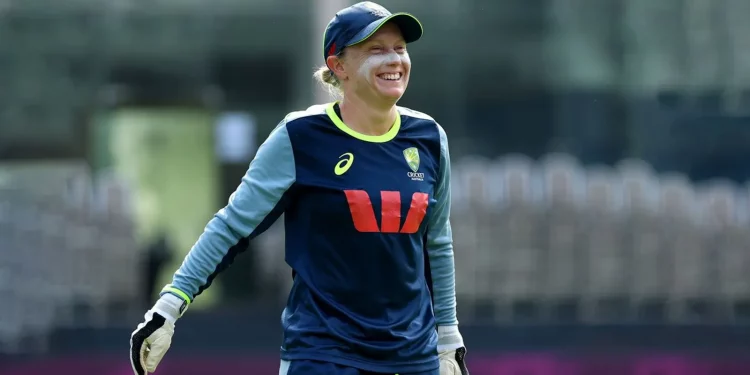How will the seven-time winners fare in the upcoming ODI cycle? What comes next for Megan Schutt, Ellyse Perry, and Alyssa Healy, the formidable trio? Australia had only lost three of the 30 ODIs they had played since the last edition in 2022, and their semi-final exit from the Women’s World Cup 2025 put an end to a period of extraordinary success.
At Thursday’s presentation, 35-year-old Alyssa Healy acknowledged that this was her final ODI World Cup. The 32-year-old Schutt had already stated that this will be her final 50-overs World Cup as well, but she will make a definitive decision during the T20 World Cup the following year. Perry, who has yet to discuss her international future, will turn 35 in three days.
“This next four-year cycle leading into the next World Cup is going to be really exciting for our group and potentially see some really cool opportunities for some of the younger players to get greater opportunities in this side,” Australia’s captain, Alyssa Healy, stated following their loss to India in the semi-finals.
“Our team will benefit much from the chance to see some of our guys perform in such a high-pressure scenario. In 2017, the same thing occurred. After giving it some contemplation, we concluded that we could have performed a little bit better under duress and that we could improve on a few key areas of our game going forward. And I believe we made that change going forward, as demonstrated by the last cycle in 2022.”
Australia had not suffered a loss in an ODI World Cup match since 2017. After losing to India in the semi-finals the previous time, Australia completely changed their approach, moving Alyssa Healy up the order to open and pursuing a batting strategy of constant attack. They achieved an ODI record 26-match winning streak using that strategy.
Alyssa Healy regarded the most recent loss as an opportunity to start over.
“This is just another re-ignition for our group to say, you know what, we can be better at little moments of the game,” Alyssa Healy stated. “It will be really beneficial for us going forward for our group to go through that, to be under pressure and see how we react. That’s extremely awesome, then.
“I hope that additional one-day cricket matches will be scheduled. That will be crucial in this cycle, in my opinion. In the Women’s Championship, we are certainly compelled to play against many of the teams we see in this World Cup. To ensure that these World Cups are fiercely competitive, however, more bilateral series will be fantastic for the global game in that respect.
“As we’ve seen towards the end of this World Cup, there’s also the obvious chance to watch the next generation emerge and play cricket the way they are, the way they can, and truly take the game on.” The women’s game is going through some incredibly exciting periods, in my opinion.
Unlike T20Is, where World Cups are held every two years, the ODI World Cup is quadrennial, therefore the conclusion of an edition frequently feels like the end of an era. This allows for more room for long-term planning. Young players like Phoebe Litchfield, Annabel Sutherland, and Georgia Voll will undoubtedly lead Australia’s journey in the upcoming ODI cycle, with seasoned players like Tahlia McGrath, Ashleigh Gardner, and Beth Mooney—all of whom are in their late 20s or early 30s—playing important roles.
Following the semi-final, Perry told reporters, “The state of the women’s game where it’s going is absolutely phenomenal.” “This World Cup has undoubtedly been the most difficult and competitive yet. The first-batting team scored over 300 in both of the semi-finals, and there have likely been more 300-plus scores this competition than ever before.
“We’re not always going to be successful, but we want to keep moving the game ahead. We play with great delight and application to our goals at the same time. Being a part of it is a pleasure. Seeing where things go makes me feel incredibly privileged.
With Litchfield’s 93-ball 119 in the semi-final, Australia’s cricketing environment is seasoned enough to continue producing players who appear ready when they step up. Shelley Nitschke, the head coach, remains optimistic about the future because of this continuous production line.
“We haven’t discussed about transition much, we had been just focussing on this World Cup obviously,” she stated. In the past few years, we have had some leaders. We’re constantly shifting and changing. That’s always a moving beast, but I’m not sure if the conversation will be more difficult or anything.
“We’ll get together and talk about [leadership] when the time comes. However, I don’t believe that a decision will be made very soon. We will continuously review and strive for improvement. In the crucial situations, we must do better.
In women’s cricket, Australia has already established themselves as the benchmark. The thought of what their next chapter will entail is frightening.







